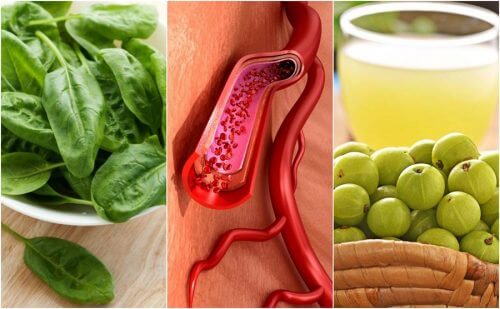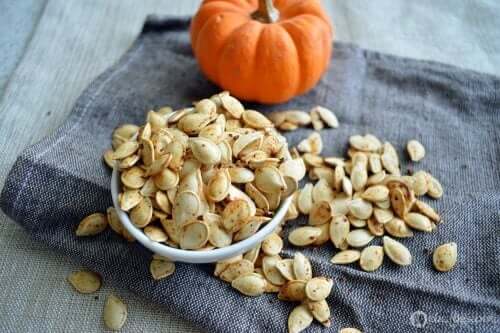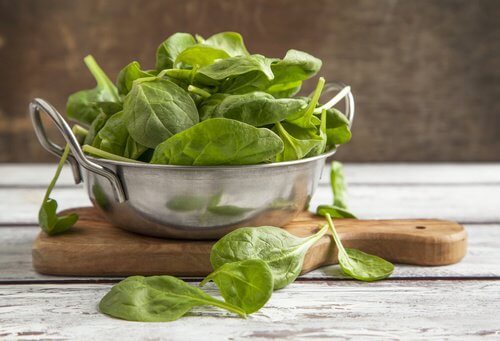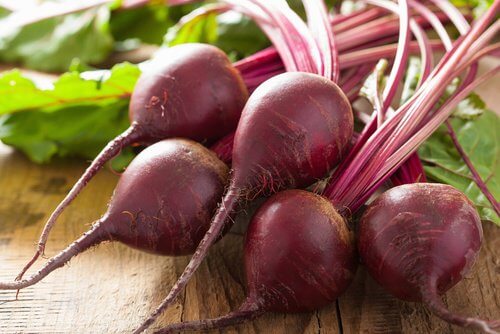The 7 Foods that May Help Increase Blood Platelets


Reviewed and approved by the doctor Maricela Jiménez López
Blood platelets are small cells that circulate the blood. Their job is to make clots to help heal wounds and stop the bleeding.
Platelets are produced in the bone marrow and repair damaged blood vessels, forming clots to heal wounds and protecting you from excessive blood loss. They are also known as “thrombocytes.”
They have small sacs on the inside called granules. These release chemical substances that attract other platelets to the site of the injury to form what is known as a platelet cap.
They are extremely important for blood clotting and controlling hemorrhages. Because of this, their presence in the blood is vital for everyone.
What about platelet disorders?
When platelet production rises or falls drastically, serious problems can arise because the platelets stop functioning normally. This change in production levels can cause chronic blood disorders and increase the risk of significant blood loss.
As with any health problem, getting professional medical advice is crucial. First and foremost, a medical professional should analyze and treat them since they can cause more serious health complications.
In addition, it’s helpful to include foods in your diet that may help regulate your blood platelet levels.
Foods to increase platelets in the blood
1. Pumpkin
Pumpkin and pumpkin seeds have amino acids and vitamins essential to platelet formation. As a result, regular consumption may improve your ability to absorb proteins and vitamin A, nutrients that play a role in the production of these small cells.

Read more here: The 3 Best Dinner Recipes with Pumpkin
2. Citrus fruits
Citrus fruits, when eaten in moderation, may help keep your blood healthy. This is because they contain vitamin C, an essential nutrient that may increase the platelet count in your blood.
Many people believe that citrus fruits are good for the immune system, and a strong immune system could help increase antibodies.
3. Indian gooseberry
Although this exotic fruit isn’t that popular, Indian gooseberry is a part of the group of foods that contribute to the health of the cardiovascular system and, in turn, the blood.
Gooseberry contains vitamins A and C which could help with platelet formation and are generally good for your health.

4. Aloe vera juice
Aloe vera contains calcium, magnesium, phosphorus, potassium, zinc, sodium, copper, vitamin C, vitamin E, and complex B vitamins, among others.
A very popular health drink right now is aloe very juice. Many people believe it could help with cardiovascular health and help with platelet count.
5. Spinach
Spinach is part of a category of vegetables that may benefit the body in many ways. This leafy green stands out for its high protein and vitamin K content. These play an important role in the formation of platelets that reduce your risk of hemorrhage in the case of injury.

6. Papaya
Scientists are studying papaya leaf extract as a possible complement to conventional treatment of platelet disorders.
7. Beetroot

Remember…
Specific foods, drinks, and natural remedies aren’t enough on their own to treat or cure illnesses. However, moderate consumption of these foods, along with a healthy lifestyle and regular visits to your doctor, can be beneficial to your health.
Lastly, if you have any questions, you should always talk to your doctor about the best way to incorporate these foods into your diet since they’ll take into account your other habits, medications, and therapies.
All cited sources were thoroughly reviewed by our team to ensure their quality, reliability, currency, and validity. The bibliography of this article was considered reliable and of academic or scientific accuracy.
- Current Dietary Guidelines. (s. f.). Food Sources of Iron. Consultado el 18 de agosto de 2024. https://www.dietaryguidelines.gov/resources/2020-2025-dietary-guidelines-online-materials/food-sources-select-nutrients/food-sources-iron
- Choudhary, A. K. (2022). Aspartame and Platelets in Type II Diabetic Patients. European Journal of Medical and Health Sciences, 4(3), 52-56. https://www.ejmed.org/index.php/ejmed/article/view/1306/797
- Eisa, M. S., Al‐Tikrity, M. A., Babikikir, M. M., & Yassin, M. A. (2021). Thrombocytopenia secondary to iron deficiency anemia responding to iron therapy. Clinical Case Reports, 9(7). https://onlinelibrary.wiley.com/doi/10.1002/ccr3.3983
- Hosseinzadeh, A., Bagherifard, A., Koosha, F., Amiri, S., Karimi-Behnagh, A., Reiter, R. J., & Mehrzadi, S. (2022). Melatonin effect on platelets and coagulation: Implications for a prophylactic indication in COVID-19. Life Sciences, 307, 120866. https://www.sciencedirect.com/science/article/pii/S0024320522005665
- Moroi, M. K., Loloi, J., & Songdej, N. (2020). Cranberry supplementation as a cause of major intraoperative bleeding during vascular surgery due to aspirin-like platelet inhibition. Blood Coagulation & Fibrinolysis, 31(6), 402–404. https://pubmed.ncbi.nlm.nih.gov/32398461/
- Ranasinghe, P., Ranasinghe, P., Abeysekera, W. K. M., Premakumara, G. S., Perera, Y. S., Gurugama, P., & Gunatilake, S. B. (2012). In vitro erythrocyte membrane stabilization properties of Carica papaya L. leaf extracts. Pharmacognosy Research, 4(4), 196. https://www.phcogres.com/article/2012/4/4/1041030974-8490102261
- Silczuk, A., & Habrat, B. (2020). Alcohol-induced thrombocytopenia: Current review. Alcohol, 86, 9-16. https://www.sciencedirect.com/science/article/pii/S0741832920301804
- Winter F. D., Jr (2015). Immune thrombocytopenia associated with consumption of tonic water. Proceedings, 28(2), 213–216. https://www.ncbi.nlm.nih.gov/pmc/articles/PMC4365124/
- White N. D. (2022). Vitamin B12 and Plant-Predominant Diets. American Journal of Lifestyle Medicine, 16(3), 295–297. https://www.ncbi.nlm.nih.gov/pmc/articles/PMC9189588/
- Zhang, X., Gu, S., You, L., Xu, Y., Zhou, D., Chen, Y., … & Qian, W. (2020). Gut microbiome and metabolome were altered and strongly associated with platelet count in adult patients with primary immune thrombocytopenia. Frontiers in Microbiology, 11, 1550. https://www.frontiersin.org/journals/microbiology/articles/10.3389/fmicb.2020.01550/full
This text is provided for informational purposes only and does not replace consultation with a professional. If in doubt, consult your specialist.








